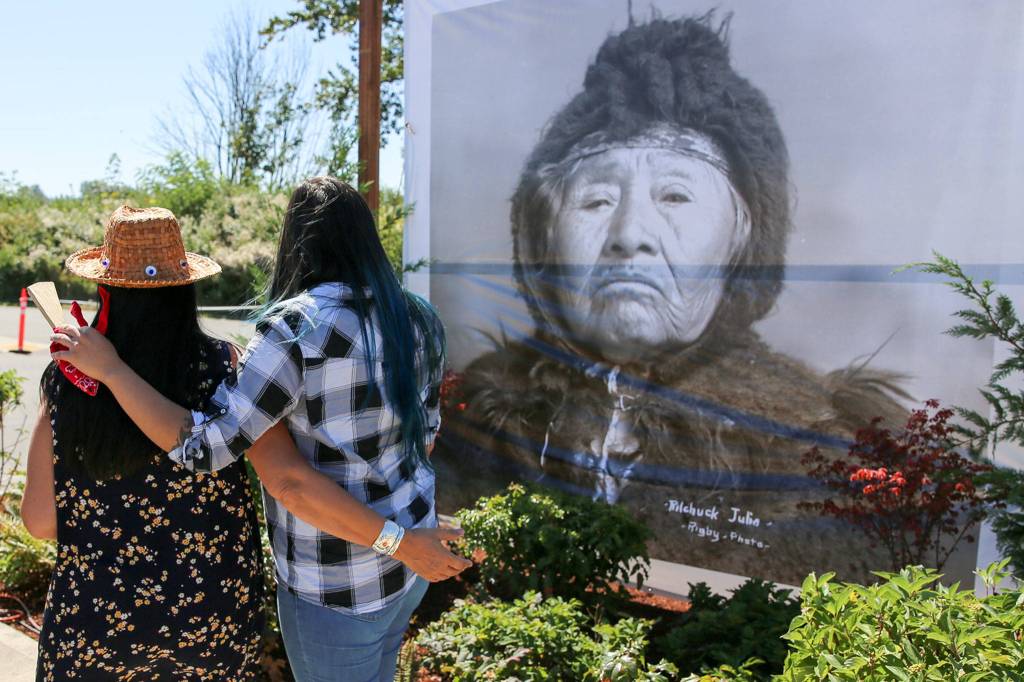Editorial: What history is owed through our monuments
Published 1:30 am Tuesday, July 7, 2020


By The Herald Editorial Board
As much as any decision made by local governments, how our collective history is honored — usually now with names and plaques rather than with monuments or statues — often is a long and deliberative and sometimes contentious process.
Perhaps it’s because those with the final say in naming a park or building recognize that — as there are more history-makers to be honored than things to be named — they are making a decision that must stand the test of time and carry as much meaning in 100 years as it does now.
The deliberation that goes into how we now choose to honor historical and community figures also is necessary now as we consider — and sometimes have failed to consider — the fate of monuments and place names set decades ago.
Most recently, city councils for the cities of Everett and Snohomish took their time in naming city parks.
Snohomish last year named a Snohomish River boat launch for Pilchuck Julia Jack, a member of the Pilchuck Tribe, who was born in the 1840s. She lived for many years near Snohomish along the Pilchuck River, making and selling blankets and baskets, selling fish, clams and berries and posing for photographs. Julia died in her 80s in 1923 of smallpox, and is buried in the city’s Grand Army of the Republic Cemetery.
Earlier this year, Everett, as it readied a new park adjacent to the new YMCA building on Colby Avenue, voted to honor Emma Yule, who became the city’s first teacher in 1891 and was later promoted to principal and superintendent, years before women’s right to vote was recognized.
In both cases, other deserving names were considered. And in both cases, elected officials took at least two years to discuss who best to honor, before settling on Yule and Pilchuck Julia.
And, as recounted Sunday by The Herald’s Julie Muhlstein, it also took a number of years to officially remove Confederate President Jefferson Davis’ name from Washington state’s Highway 99 as well as monuments to him at Peace Arch Park in Blaine and in Vancouver and rename the highway for William P. Stewart, an African American who fought for the Union Army in the 29th U.S. Colored Volunteer Infantry during the Civil War.
Unlike Davis, who had absolutely no connection to Washington state history, Stewart came to the state in the years after the war, settling with his wife in Snohomish in 1889, the year Washington became a state. Stewart is buried, along with other Union and Confederate soldiers in the GAR Cemetery.
The effort to remove Davis’ name from the highway and honor Stewart was first pursued by former state Rep. Hans Dunshee in 2002, but the Legislature didn’t adopt a joint memorial resolution to rid the highway of Davis’ name and honor Stewart until 2016.
That can appear to be a glacial span of time compared with recent actions — whether by elected officials or protesters — to remove or topple statues to Confederate military commanders, colonial conquerors and even Founders with troubling pasts regarding slavery or the slaughter of American Indians. In many cases, especially regarding Confederate statues, the debate has been going on far longer than just the recent weeks since Americans began considering anew how racism has been shown approval — sometimes implicit and sometimes obvious — in decisions regarding how we remember our history and how we “write it” with such monuments.
As we gain a better understanding of our history — much of it complicated and uncomfortable when it involves those responsible for the nation’s founding — we need to show as much consideration in how we remove names and monuments as we now routinely take in naming parks and affixing plaques that honor those who we believe are deserving.
There’s reason to find some monuments — especially those honoring Confederate “heroes,” often placed decades after the war during the Jim Crow era and meant to intimidate Blacks — disturbing, hateful and worthy of immediate removal. And that removal should come much quicker than it has. But their removal requires a public, deliberative process, rather than by the sledge hammers, ropes and passions of protesters.
That process is not for the sake of the monuments or those who erected them. It is, instead, for history’s sake and our sake that we all have the opportunity to learn about and fully consider who and why we have honored some above others in our public squares.
Erasing names and removing monuments without discussion and consensus risks forgetting the lessons we must take from our shared history, regardless of whether those memorialized are worthy of our pride or our shame.





